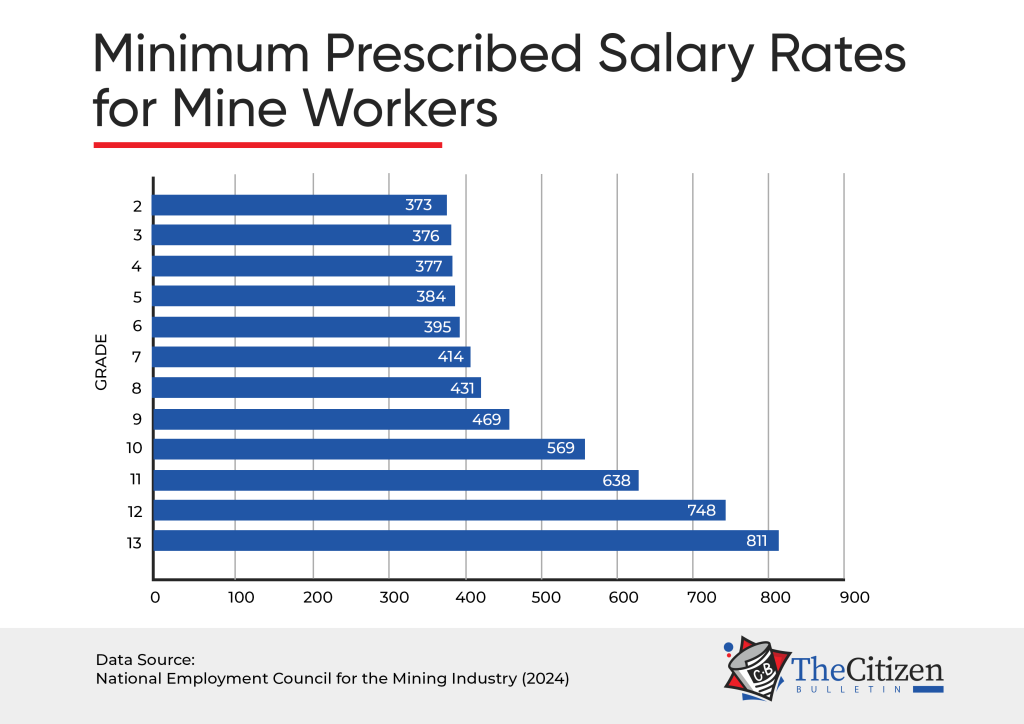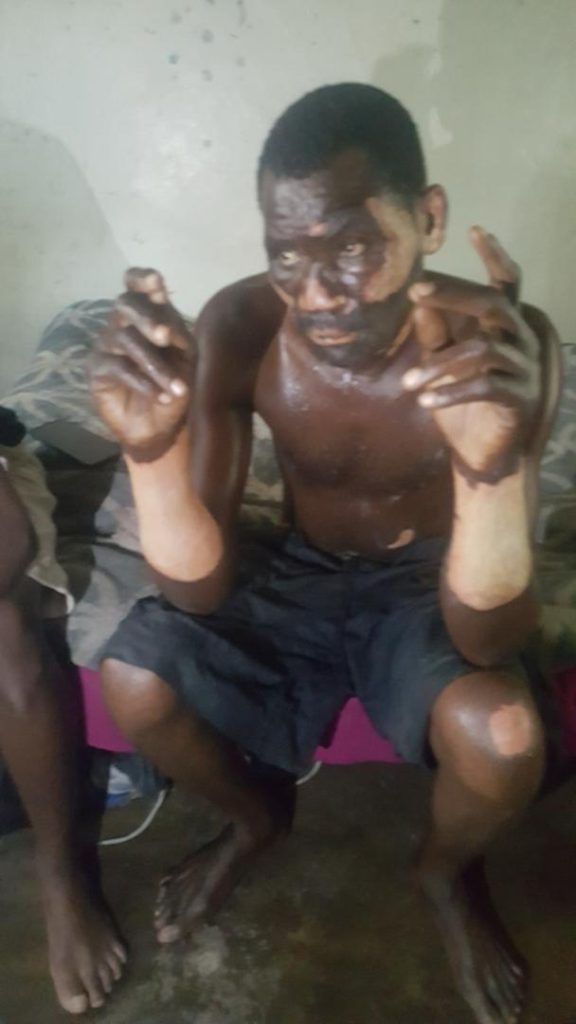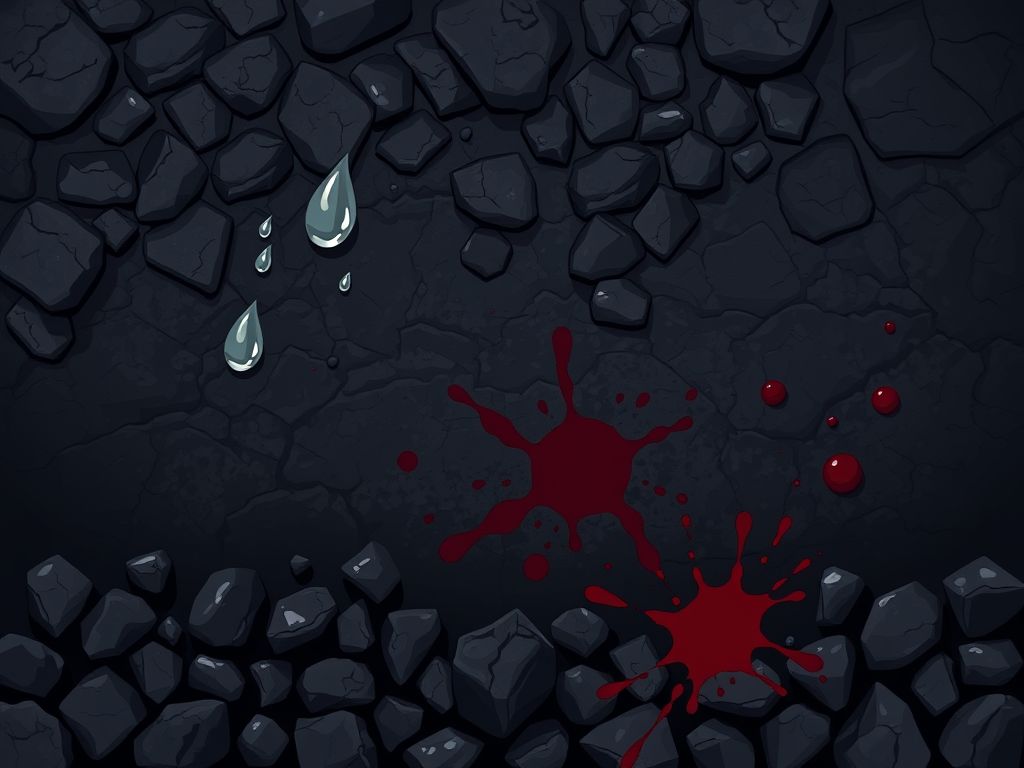The air is thick with toxic fumes as workers in worn jeans and faded shirts toil at the coke oven battery. The only protective gear in sight is a pair of tattered gloves, hastily pulled over rough, cracked hands.
This is the harsh reality for workers at some of the Chinese coking plants in Hwange district, Matabeleland North.
At the heart of the coke oven battery, the acrid smell of sulfur and coal lingers in the air. The workers, mostly in their 30s and 40s, move with a sense of resignation, their faces etched with the lines of hard labor and exposure to toxic gases.
“We’re not just workers; we’re treated like slaves. The company doesn’t care about our health. They just want to make money, no matter the cost.”
Mthulisi Ndlovu*, a 35-year-old coke oven worker
The workers’ concerns are well-founded.
According to the U.S. National Cancer Institute, exposure to coke oven emissions increases the risk of lung cancer and possibly kidney cancer. Additionally, a study published by the National Library of Medicine found that long-term exposure to coke oven emissions is associated with reduced lung function and a higher risk of chronic obstructive pulmonary disease (COPD)
“I’ve been working here for three years, and I’ve seen many colleagues fall ill with strange coughs,” says Arnold Lungu*, 40. “Some have been badly injured. But the company ignores our complaints and tells us to keep working.”
Despite the risks, workers are reluctant to speak out. Fear of retaliation and job loss is palpable.
“If we complain, the company will fire us,” Ndlovu says. “We’re already struggling to make ends meet. We can’t afford to lose our jobs.”
Their fears are justified. Zimbabwe’s labor laws are often poorly enforced, allowing companies to operate with impunity. Workers who speak out against their employers risk dismissal.
An investigation by The Citizen Bulletin revealed rampant labor violations at most of the Chinese coking plants in and around Hwange. The main concerns include a lack of Personal Protective Equipment (PPE) and wage theft.
While the National Employment Council (NEC) states that the lowest-paid worker (Grade 1) in the mining sector should earn $372.75 per month, many workers receive between $100 and $150. A wage circular obtained by The Citizen Bulletin confirms that employers must pay at least $253.47 in U.S. dollars, with the remainder in local currency (ZiG), pegged at the prevailing auction rate.

Despite these regulations, most Chinese employers circumvent labor laws by offering short-term contracts of three to six months, preventing workers from gaining permanent status or benefits.
In Hwange, Chinese coking companies—including Zimbabwe Zhongxin Coking Company, South Mining, Zhong Jiang, Dinson Colliery, Zimberly, Zim Hwange Coal Company, Tutu, and Jinani—have invested heavily in coal extraction and processing, creating much-needed jobs.
But beneath the surface of this investment lies a disturbing reality.
Workers at these coking plants face hazardous conditions, exposure to toxic chemicals, and blatant disregard for their rights.
“We work without proper protective gear, and coal dust is everywhere,” says Thomas*, 32, a worker at Jinani. “Many of my colleagues have fallen ill, but the company doesn’t care.”
Kelvin Chuma*, 35, winces in pain as he struggles to sit up in his hospital bed. His body is broken, his spirit shaken.
“I was one of 60 workers crammed into a tipper truck when we got into an accident,” he recalls. “The company refused to provide proper transport, so we had no choice. Everything happened so fast. When I woke up, I was in a hospital with broken limbs. I later heard that people had died.”
According to official records, the accident killed two workers and injured 60 others when the driver lost control while overtaking, causing the truck to overturn.
Kelvin’s family is now struggling to raise money for his medical bills after the company abandoned its responsibility.
“I suffered multiple fractures on both legs and one hand. I was transferred to Bulawayo for further treatment, but the company reneged on its promise to pay my medical bills. My family has been left to cover the cost of my surgery.”
The company, Zhong Jing Heli, which is constructing a 300MW thermal power plant in Hwange, faced heavy criticism for failing to provide workers with safe transport, among other labor violations.
Kelvin’s story is not unique.
Alick Sandu*, a former worker at a Chinese-owned coke plant, sustained third-degree burns while working near a 2,000-degree Celsius coke oven battery without proper protective gear.

“We were given no safety equipment, and when accidents happened, the company would deny responsibility,” Sandu says.
The influx of Chinese investors in Zimbabwe has been met with both optimism and concern. According to the United Nations Conference on Trade and Development, Chinese investment in Zimbabwe surged by more than 5,000% from 2009 to 2013, making Zimbabwe one of Africa’s largest recipients of Chinese Foreign Direct Investment (FDI).
Reports show that annual FDI from China jumped from $11.2 million in 2009 to $602 million in 2013, with mining, agriculture, and manufacturing as key sectors.
But while on the surface Chinese investment appears to fuel economic growth, locals say it comes at a steep human cost.
“Yes, we have jobs, but the working conditions and low pay have turned us into slaves in our own country.”
Alick Sandu*, former worker at a Chinese-owned coke plant
He recalls an incident at South Mining, a Chinese coking company, where a female worker was ordered by a supervisor to clean toilets with her bare hands. The incident sparked outrage, with workers staging a protest at the company premises.
A Female worker forced to clean toilets with bare hands, sparking outrage over treatment by Chinese companies.
Justice Chinhema, the general secretary of the Zimbabwe Diamond and Allied Minerals Workers Union (ZDAMWU), confirms that workers in Hwange face severe exploitation.
“There is rampant abuse—wages below a living wage, lack of PPE, and extended working hours beyond the legal limit,” Chinhema says.
Meanwhile, human rights defender Farai Maguwu, director of the Centre for Natural Resource Governance, calls the situation modern-day slavery.
Maguwu claims Chinese investors leverage their political ties to evade accountability.
“Chinese investors now control 80% of Zimbabwe’s mining sector and 90% of Hwange’s mines. They enjoy political connections and use them to escape accountability,” Maguwu says.
A report by Information for Development Trust (IDT), Purses and Curses: Impact of Chinese Mining on Local Communities in Zimbabwe, found that most Zimbabweans believe Chinese investments do not benefit local communities.
Efforts to obtain official data on labor abuses were unsuccessful, as most cases go unreported. However, ZDAMWU is currently litigating cases within the mining sector related to unpaid salaries, poor working conditions, and lack of protective gear.
A senior staffer at Zhong Jiang Heli declined to comment on the allegations.
“I’m not allowed to speak on this, and giving out my supervisor’s contact could cost me my job,” they said, fearing repercussions for discussing the allegations facing the Chinese-owned company.
Repeated attempts to reach company directors—who remain largely inaccessible—were unsuccessful.
Editor’s note: Names marked with asterisks (*) have been changed to protect the identities of sources.

